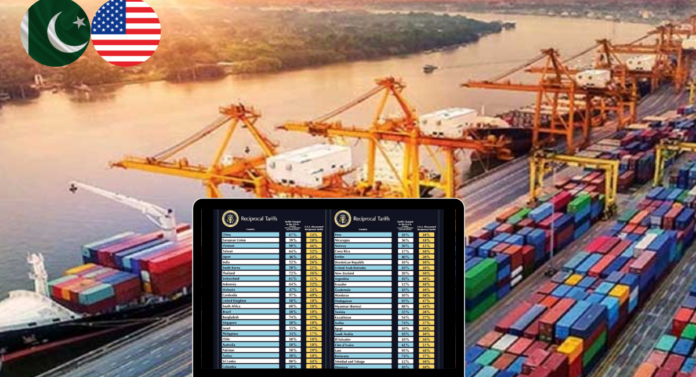Pakistan $1.4 billion exports loss could be caused by United States tariffs. The Pakistan Institute of Development Economics (PIDE), in his policy note issued on 13 April 2025, has announced a warning that a United-States issued proposed reciprocal tariff, temporarily suspended lately, can severely harm exports of Pakistan. It can lead Pakistan to macroeconomic instability and high numbers of job losses. PIDE also claimed that these tariffs could cause an annual loss of $1.1 to $1.4 billion in exports.
Dr. Muhammad Zeshan, Dr. Shujaat Farooq, and Dr. Usman Qadir have conducted a study, according to which a proposed reciprocal tariff of 29 % on exports from Pakistan to the United States. When combined with the 8.6% MFN (Most Favored Nation) tariff, the total could reach 37.6%, causing a 20 % to 25 % loss on exports to the United States.
In the 2024 fiscal year, Pakistan became the largest single country in export markets, exporting 45.3 billion worth of goods. The textile would bear great loss from this impact. Major exporters like Interloop AND Nishat Mills may have forcefully decreased their production, which could lead to 500,000 people losing their jobs.
PIDE also suggested that Pakistan should make high-level, tactful efforts to increase the mutual costs of tariffs. The policy note highlights that $181 million worth of cotton was exported by the United States to Pakistan in 2024, a trade that tariffs could disrupt.
The note also proposed that the US potentially violated the multilateral rules of trade by exceeding the WTO (World Trade Organization) bound tariff ceiling of 3.4%. While another option could be legal resources, Pakistan has limited efforts. Could maybe become an obstacle. Moreover, PIDE also suggests an increased interconnected nature of global trade. For instance, the US-Pakistan textile loop can be used; Americans provide cotton to Pakistan, which exports readymade garments in turn. Disrupting this value chain would be effects both countries
“ Trade is not a zero-sum game. It’s about shared value, about building connections that make both economies stronger. These proposed tariffs risk severing those ties. We see this moment not just as a treat but as a catalyst for course corrections toward a more resilient, diversified, and strategic export future for Pakistan, said Vice Chancellor of PIDE Dr. Nadeem Javaid.
PIDE also recommended Pakistan consider a reduction in tariffs on selected US imports like scrap metal, machinery, and petroleum. Moreover, Pakistani firms are encouraged to use more inputs from the US, such as cotton and yarn, to maintain the value chain that could help with tariffs.
While PIDE also highlighted the need for diverse export products and markets for both countries, adding more countries such as the EU, ASEAN nations, China, Africa, and the Middle East in the export sector for halal food, processed food, sports goods, and IT.
PIDE, despite all challenges, considered this an opportunity to establish its exports strategic policy reforms and diversify the efforts. Pakistan could become a competitive and resilient player on the international level


